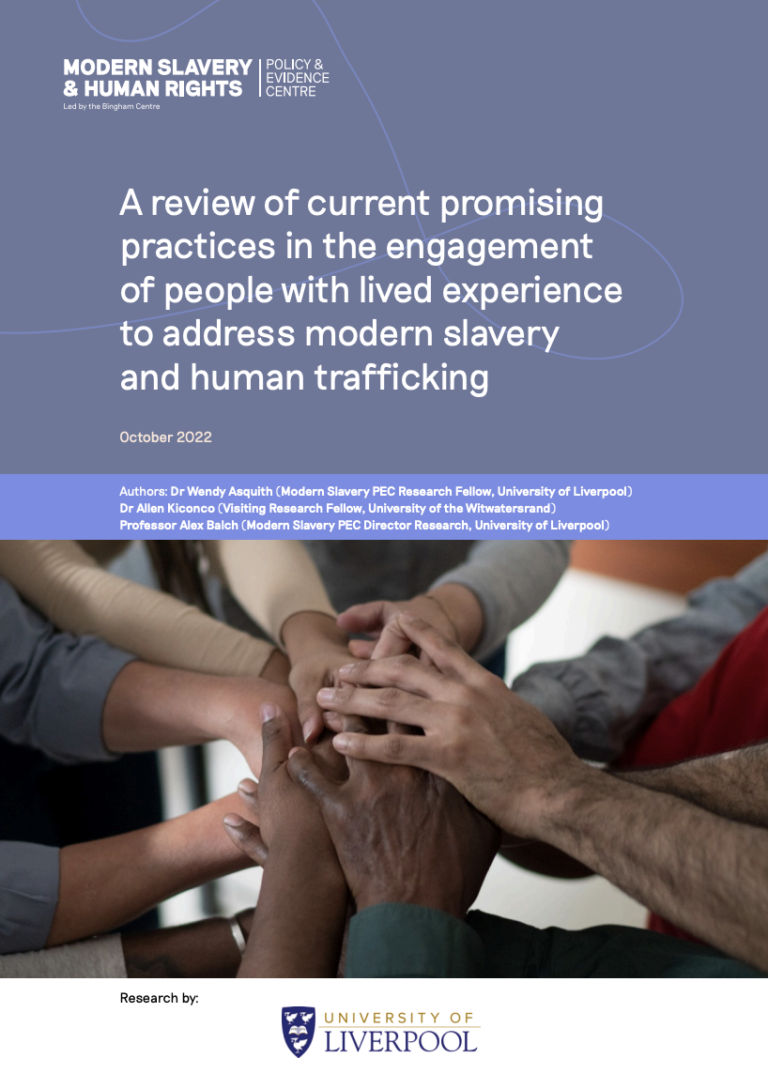This report summarises findings from research into the best ways to engage and involve people with lived experience of modern slavery and human trafficking (including survivors) in international policy and programming on modern slavery. It gathers original and existing evidence from multisector stakeholders across a range of global regions including: East and West Africa, Middle East and North Africa (MENA), North America, Europe, South, East and South-East Asia. It analyses this evidence to offer a set of key findings about the benefits of engaging people with lived experience, the importance of terminology, what current promising practice looks like and how to connect practice with principles of ethical and meaningful engagement as well as specific policy recommendations for UK government. The research was commissioned by the UK Foreign, Commonwealth and Development Office (FCDO) and conducted by the University of Liverpool, as consortium partner of the UK Modern Slavery and Human Rights Policy and Evidence Centre (Modern Slavery PEC) and took place between February-June 2022.

